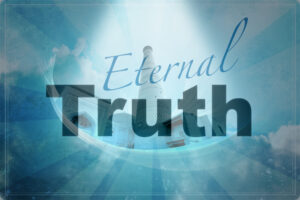LA PARTICIPACION DE MUJERES Y NO CRISTIANOS TRADUCTORES EN LA IGLESIA DE CRISTO
Parece que el tema es de relevancia en nuestros círculos desde hace algunos días. Me permito escribir sabiendo que en algún momento alguna personas estará en busca de información sobre este tema y será atraído a este artículo. Deseo proceder en el siguiente orden. Primero analizaremos el trasfondo Bíblico de lo que era la traducción, luego el oficio de traductor en nuestros días y por último analizaremos algunas ideas que están en oposición a la posición de este autor.
Primero. La cuestión de la traducción en el N.T es una que se pude observar con claridad particularmente en 1 Corintios 12. En la era milagrosa del siglo primero el Espíritu Santo había equipado a cristianos para la necesaria edificación. En 1Co.12:10 aparece la mención de la interpretación de lenguas como un don. Es decir existía el don milagro de hablar en lenguas que el individuo no había aprendido, pero también existía la habilidad sobrenatural de interpretar esas lenguas sin haber sido instruido previamente. Claramente la “coma” separa a los dos dones como distintos. Al ser un don del Espíritu este debía ser utilizado adecuadamente en respuesta a la bondad de Dios. Parece ser que cuando un don no era utilizado de forma adecuada se apaga (2Tim.1:6) y de esa forma deshonraba la elección del Espíritu para ser portador de ese don. Ahora bien, 1Co. 14:5 nuevamente se hace la mención al don de lenguas y está se pide que si no hay nadie que pueda interpretar, aquel que tiene el don de lenguas deberá de guardar silencio. Esto se menciona en un contexto donde los hermanos erróneamente estaban iniciando a idealizar algunos dones… “este don es mejor que este” creo que firmemente Pablo hace un llamado a que el punto no son los dones sino más bien para que sirven; a saber para la edificación de la Iglesia. Al fin y al cabo para eso los está otorgando el Santo Espíritu. 
Al tratar de citar estos pasajes a nuestra realidad en la actualidad, se debe de proceder con extremo cuidado. El contexto NO ES EL MISMO, el Espíritu Santo ya no distribuye dones milagros a los hombres. Al hablar de interprete en nuestros días no es lo mismo que en el contexto de corintios porque debemos aprender la lengua para poder interpretar. Quien tenía el don de ser interprete en el siglo primero debía usar ese don adecuadamente. Algunos de estos dones en el siglo primero fueron dados incluso a mujeres (1Co.11:5). Las hijas de Felipe profetizaba (Hechos 21) aunque dudo mucho que lo hicieran en la asamblea. Cada quien era responsable de su don y debía de ser usado en acorde a la instrucción ya dada dada por E.S a saber; en la asamblea de la Iglesia la mujer calle.
Segundo algunos hermanos con una trayectoria pura, han utilizado estos pasajes para regular y dar dirección con la cuestión de la traducción en nuestros días. Aquí es donde entro en desacuerdo con ellos, ya que considero objetivo poder separar el contexto no solamente inmediato sino la acción sobre natural del siglo primero a la vida de la iglesia en el siglo XXI. El rol de la mujer en la iglesia tiene su origen desde el Génesis 3 y donde no hay dudas que en la adoración de la Iglesia la mujer debe de callar, pero mezclar esto con el oficio de la traducción a mi juicio es una mezcla injustificada. En algo debemos quedar más que claro, no estoy abogando para que las mujeres traduzcan en la adoración, ahí deben de estar en silencio (1Tim 2:11), sino de todas las actividades aparte de la adoración, un estudio personal, una situación de consejería y en cosas semejantes, no tenemos suficiente evidencia para decir que esto no es posible. Incluso aunque no es del todo de mi preferencia en determinado momento un no cristiano podría llevar a cabo una traducción evangelista aparte y fuera de la adoración. El traductor en nuestros días no le está rindiendo un servicio a Dios con su don, sino que está prestando un servicio al expositor como tal. ¿Acaso creo que el traductor es una maquina? Jamás lo he considerado así. Más bien, el buen traductor va a ser fiel completamente al mensaje que está escuchando y está traduciendo. Supongamos que la iglesia necesite transportarse a un lugar, el chofer no es Cristiano, ¿será correcto que transporte a la iglesia solamente porque no es cristiano? La relación que guarda este ejemplo en sencilla y es una, él solamente está prestando un servicio externo a la espiritual a quienes si están llevando a cabo tal servicio.
Alguien dijo que el servicio de traducción ha sido menospreciado y que hay que tomarle importancia. Creo que debe tener importancia si, pero no creo que deba de ser elevado a un plano de “servicio espiritual” como lo fue en el siglo primero porque sencillamente eso ya no funciona así de la misma manera.
Ahora bien, una hermana puede traducir en el evangelismo así como también puede evangelizar con hermanos fieles. Pablo aceptó hermanas y estas combatieron juntamente con él en este campo (Filp. 4:1-2) si una hermana está autorizada para evangelizar juntamente con hermanos fieles ¿Porqué debería de haber una prohibición para traducir?… un absurdo se puede observar a la distancia.
Tercero. Hay hermanos que están en oposición a la postura que he adoptado. Quisiera dar cabida a la razón y dejar al descubierto los motivos lógicos del porqué sostengo esta posición.
1. El énfasis va en el mensaje no el instrumento. Me preocupa que en todo este asunto se esté poniendo mucha más atención a los instrumentos que al contenido. Por instrumentos me refiero en un sentido metafórico. Hay más de 50 veces en que esta palabra es utiliza en lugares como Hechos 9:15 Dios la usa en relación a Pablo y el ministerio que este iba a desempeñar. ¿Acaso pensaba Dios que Pablo era similar a un objeto inanimado al que podía utilizar y luego desechar? Ninguno de nosotros sospechará de Dios de esa forma, sino la frase es entendida en un sentido poético. Satanizar el término como lo han hecho algunos hermanos para decir que estamos desvalorando a una persona si lo usamos, implicaría afirmar que Dios también lo hizo y eso es MUY peligroso. El énfasis y la importancia para nosotros debería de estar en el mensaje.
2. La semilla germina por si sola. En paralelo me gustaría saber ¿Cuál traductor de las versiones en español que tenemos era miembro de la Iglesia de Cristo?. Note cómo está ilustración está totalmente relacionada con nuestro tema ya que: 1). Implica traducción. 2). No es en la era milagrosa 3). La traducción es hecha por no cristianos y 4). Estamos hablando de la palabra de Dios. Estos cuatro aspectos muestran la relación por lo que las siguientes preguntas ameritan un respuesta coherente:
A. ¿Usaría usted una traducción de la Biblia realizada por inconversos?
B. Si responde que no ¿Porqué entonces niega que un no converso pueda traducir una lección de un cristiano que está evangelizando?
C. Si responde que si ¿Cuál es la base para usar un trabajo de traducción de alguien que no ha obedecido al Señor como lo es de los traductores de la Biblia?
La semilla ha germinado por si sola cuando encuentra un buen terreno fértil para hacerlo y no ha dependido del sembrar para hacerlo. El código V (manuscrito vaticano) ha permanecido por siglos custodiado por la Iglesia católica, y aunque las manos no sean las correctas, esta semilla es pura al punto de que no existe otro manuscrito uncial como él tan limpio, claro y completo de entre los 200 unciales. Las manos “sucias” del sembrador no alteran la composición de la semilla. Otro ejemplo fáctico es la conversión de algunos hermanos como Alexander Campbell, quien abandó el mundo presbiteriano y fue sumergido en agua por un denominacional, porque él entendía que el poder está en la palabra en 2 Co.4:7. Ya se que el predicador que me evangelizó esté en pecado, o quizás el inconverso que me tradujo o incluso si lo hizo una mujer, la palabra de Dios hará su trabajo (Heb.4:12). Observe con cuidado, ya que negar estas verdades del movimiento de restauración pondría en tela de duda nuestra propia conversión pues de alguna forma estamos ligados al movimiento de restauración por haber sido evangelizados por misioneros de Estados Unidos.
3. Ausencia de instrucción específica. Dios ha dado instrucciones explicitas y también implícitas y ambas son igual de autoritarias. En todo este asunto la instrucción especifica a la que regresamos es “Id y predicad el evangelio”. Sabemos que esta gran comisión es dada a sus discípulos y por ende a nosotros también (Jn. 17:20-25). La forma en como vamos a ir a predicar no ha sido especificada, sin embargo si hay maneras que me ayudan a cumplir el mandamiento, la misma viene a estar autorizada.
A. Carro…autorizado porque me ayuda a cumplir el mandamiento.
B. Internet… autorizado porque me ayuda a cumplir el mandamiento.
C. Pizarra… autorizada porque me ayuda a cumplir el mandamiento.
D. Traductor (no cristiano o mujer)…autorizado porque me ayudan a cumplir el mandamiento.
Quien está enseñando soy yo no el traductor, en este sentido hay ausencia de legislación Bíblica y por lo tanto si razonamos correctamente A, B, C y concluimos que “D” es incorrecta aunque tenga la misma estructura lógica, estamos en medio de un gran conflicto. En lógica Modus Tollendo se aplica aquí, ya que al negar los antecedentes (A, B Y C) que tienen la misma estructura, consecuentemente estás negando el precedente (D).
Entonces alguien podría decir: ¡Pero es que todos los demás (A, B Y C) son objetos inanimados y “D” estamos hablando de una persona! ¿Acaso hace alguna diferencia si es objeto o persona? Si tienes una instrucción que puede ser aplicable ya sea explicita o implica, sale sobrando si es objeto o persona. El punto de este enunciado es que no se cuenta con ningún principio de autoridad para negarla de la misma forma que tampoco se cuenta con autoridad para promoverla. Por lo tanto queda sujeta a “asuntos de conveniencia”.
Conclusión
Hay que buscar como agradar a Dios en todo, estudiar objetivamente, ser celosos de la verdad, pero entre todo esto ser racional (es decir; llegar a conclusiones que sean garantizadas por la evidencia). Alguien dijo: “En el principio era la lógica y la lógica estaba con Dios y Dios era la lógica”. El énfasis de este teólogo es claro al asociar el logos (que conlleva idea y palabra) con la lógica.
Caer en pensamientos que no pueden ser sustentables con la lógica y que de repente comienzan a contradecirse, pondrá a cualquiera estudiante fiel en desventaja. Creo que la discusión del tema como la práctica en si demandan de sabiduría (tratar de buscar traductores dentro de la Iglesia de Cristo) y prudencia (No legislar donde la Biblia no lo ha hecho)




